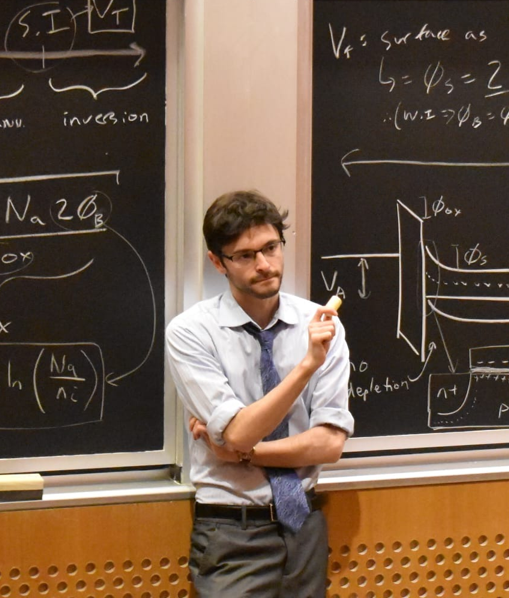Associate Professor of EECS Max Shulaker Named 2021 Moore Inventor Fellow

Associate Professor of EECS Max Shulaker was named a 2021 Moore Inventor Fellow on October 4th by the Gordon and Betty Moore Foundation. The prestigious recognition, shared by only five scientists this year, is intended to further the development of new technologies and nurture the next generation of scientist-inventors. Shulaker came to the attention of the Moore Foundation specifically for his invention of a three-dimensional electronic chip capable of capturing and analyzing large amounts of information about the volatile organic compounds found in patient exhalations. In the recognition’s citation, the Foundation noted, “If successful, [Shulaker’s] invention could enable earlier clinical intervention and a new generation of real-time personalized diagnostics.”
Of Shulaker’s achievement, faculty head of electrical engineering Joel Voldman said, “It’s hard to conceive of a young faculty member who better embodies the future of Moore’s Law than Max. This is an extremely well-deserved honor.”
Affiliated with the Microsystems Technology Laboratories (MTL) and the Research Laboratory of Electronics (RLE), Max Shulaker joined the MIT Department of EECS in July of 2016. He received his B.S., M.S., and Ph.D. from Stanford University in Electrical Engineering. During his Ph.D., his research on carbon nanotube-based transistors and circuits resulted in the first digital systems built entirely using carbon nanotube FETs (including the first carbon nanotube microprocessor), the first monolithic three-dimensional integrated circuits combining arbitrary vertical stacking of logic and memory, and the highest performance and highly-scaled carbon nanotube transistors to-date. Among many other honors, he has received the IEEE Nano Early Career and IEEE EDS Early Career Awards, as well as the Ruth and Joel Spira Award for Excellence in Teaching from the School of Engineering and EECS.
The Moore Inventor Fellowship is named after Silicon Valley pioneer Gordon Moore, who accurately predicted the exponential growth of computing power (“Moore’s Law”). The fellowship specifically focuses on three areas: scientific discovery, environmental conservation and patient care.“We cannot know in advance that an invention we support will change the world.” said Robert Kirshner, Ph.D., chief program officer for science at the Moore Foundation. “Yet these inventors and their ideas show great promise in areas our foundation supports.”
Media Inquiries
Journalists seeking information about EECS, or interviews with EECS faculty members, should email eecs-communications@mit.edu.
Please note: The EECS Communications Office only handles media inquiries related to MIT’s Department of Electrical Engineering & Computer Science. Please visit other school, department, laboratory, or center websites to locate their dedicated media-relations teams.